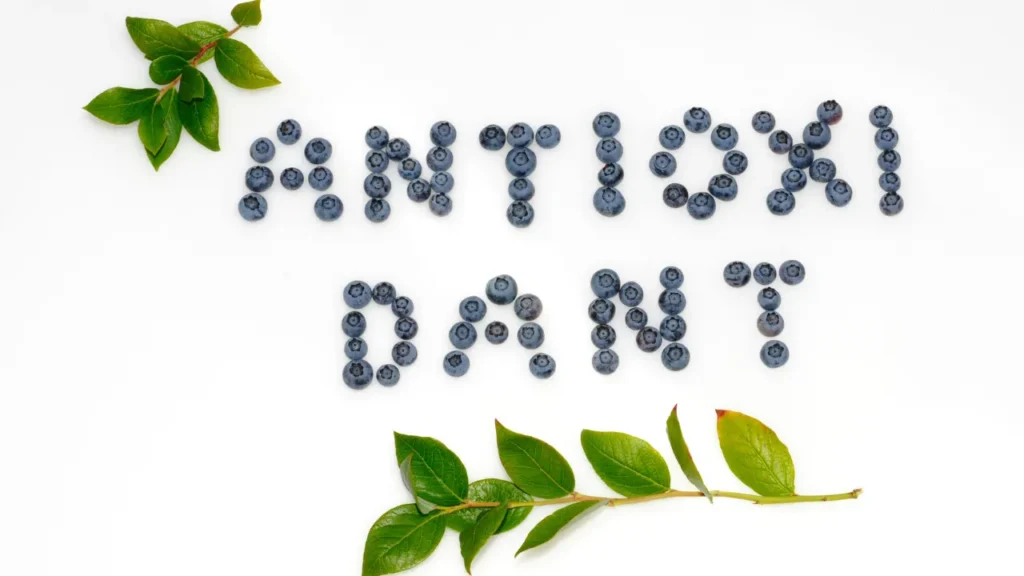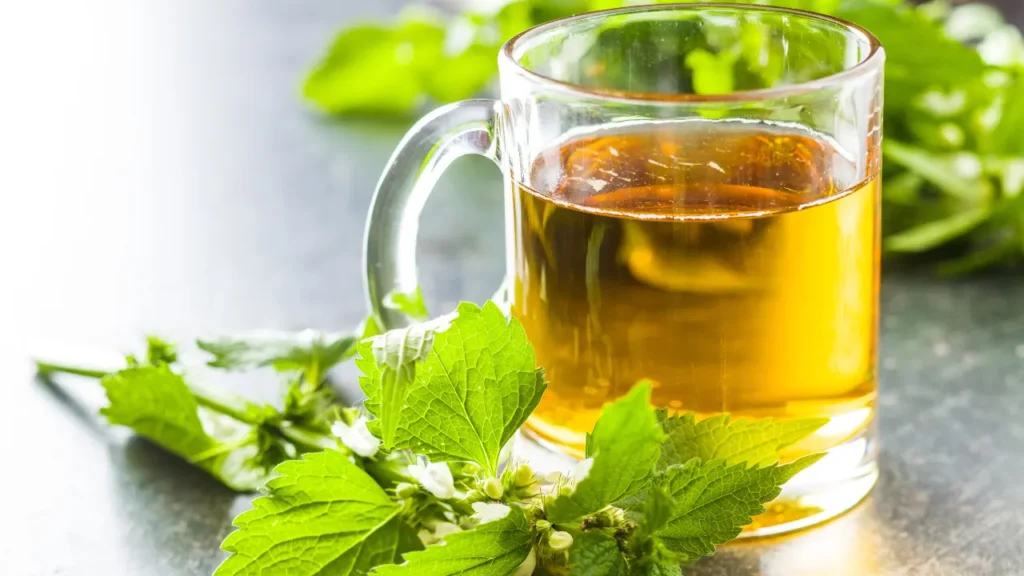Ancient Egyptians have long used the perennial herbaceous plant stinging nettle (urtica dioica) for medical purposes. It thrives in soil rich in nitrogen and is extensively distributed in Europe, Asia, North Africa, and North America. The name comes from the tiny hairs on its stems and leaves, which, when touched, produce irritants. Even though it stings, nettle is a useful plant with nutritional and medicinal properties that can help with improving focus, alertness, and cognition.
You May Also Like:
Dr Emil Nutrition Lion’s Mane Reviewed: A Leading Nootropic Mushroom Product
Stinging Nettle: Benefits, Dosage, Side Effects, Drug Interactions, and Other Important Information is an original (NootropicsPlanet) article.
Nature of Stinging Nettle
The perennial flowering plant known as stinging nettle (urtica dioica) is indigenous to North America, Europe, Asia, and North Africa. Its heart-shaped leaves and the trichomes—hair-like projections on the leaves and stems—are its defining features. When these trichomes come into contact with skin, they emit a plethora of chemicals, including formic acid, histamine, acetylcholine, and serotonin (5-HT). This is what gives the plant its distinctive stinging sensation. Due to the soil enrichment from agricultural operations, stinging nettle can be found in abundance and thrives in nitrogen-rich soil.
Health Benefits of Stinging Nettle
Stinging nettle offers a multitude of health benefits, which can be attributed to its rich chemical composition. The detailed exploration of these benefits reveals its potential in managing various health conditions and supporting overall well-being:
- Anti-inflammatory Effects: Nettle’s ability to reduce inflammation is one of its most well-known properties. The plant contains compounds that inhibit the production of inflammatory cytokines, which can help manage conditions like arthritis and reduce symptoms associated with inflammatory diseases.
- Allergy Relief: As a natural antihistamine, nettle can mitigate the symptoms of seasonal allergies. By stabilizing mast cells, it prevents the release of histamines that cause allergic reactions, offering relief from sneezing, itching, and runny nose.
- Prostate Health: Research indicates that stinging nettle can benefit prostate health, particularly in the treatment of benign prostatic hyperplasia (BPH). It can help reduce prostate size and alleviate symptoms such as urinary frequency and flow issues.
- Blood Sugar Control: Several studies have suggested that stinging nettle can help in regulating blood sugar levels by enhancing insulin sensitivity or stimulating insulin secretion. This action is particularly beneficial for individuals with diabetes or those at risk of developing the condition.
- Pain Relief: The analgesic properties of stinging nettle can help in the management of pain, making it useful for individuals suffering from conditions that cause chronic pain, such as fibromyalgia or arthritis.
- Menstrual Aid: Stinging nettle has been traditionally used to alleviate menstrual cramps and regulate menstrual flow. Its nutritional content, particularly in iron, also makes it a valuable plant in combating anemia often associated with menstrual cycles.
- Detoxification: The diuretic properties of stinging nettle support the elimination of toxins from the body through increased urination. This can help in the detoxification process, promoting kidney health and overall bodily cleansing.
- Antioxidant Effects: The high levels of antioxidants in stinging nettle protect the body from oxidative stress and can reduce the risk of chronic diseases, including cardiovascular diseases and certain types of cancer.
- Cognitive Health: Though direct research is limited, the potential of stinging nettle to enhance cognitive functions such as alertness, focus, and cognition can be indirectly inferred through its blood sugar regulation, anti-inflammatory effects, and overall enhancement of physiological health.
These health benefits illustrate the versatility of stinging nettle as a therapeutic agent. Its multifaceted impact on health underscores its potential not only in traditional medicine but also in modern dietary supplementation for a range of conditions.

Chemistry of Stinging Nettle
Stinging nettle (urtica dioica) is a rich source of various biochemical compounds that contribute to its therapeutic properties. These include:
- Vitamins: Stinging nettle contains vitamins A, C, K, and several B vitamins, essential for maintaining bodily functions and supporting the immune system.
- Minerals: Stinging nettle is a good source of minerals like calcium, iron, magnesium, phosphorus, potassium, and sodium, which play crucial roles in bone health, blood pressure regulation, and other physiological processes.
- Amino Acids: The presence of amino acids, the building blocks of proteins, contributes to its nutritional value and supports various bodily functions.
- Fatty Acids: Essential fatty acids found in nettle are important for heart health and inflammation regulation.
- Polyphenols: These are antioxidants that protect the body against oxidative stress and can reduce the risk of chronic diseases. Stinging nettle contains various polyphenols, including flavonoids and phenolic acids, which are known for their anti-inflammatory and analgesic properties.
- Phytochemicals: Stinging nettle contains lignans and other phytochemicals that can influence hormonal activity and possess anti-inflammatory effects.
The stinging sensation associated with stinging nettle is due to the trichomes on its leaves and stems. These hair-like structures inject substances such as histamine, acetylcholine, serotonin (5-HT), and formic acid upon contact, which are responsible for the initial irritation. These compounds are the key to understanding the plant’s interaction with the human body, leading to various physiological responses.
Physiological Properties of Stinging Nettle
The physiological properties through which stinging nettle exerts its effects on the body are multifaceted, involving direct and indirect actions on various systems:
- Inflammatory Response: Stinging nettle’s ability to modulate the inflammatory response is significant. Its compounds can inhibit the production of pro-inflammatory cytokines and the activity of enzymes like cyclooxygenase-2 (COX-2), reducing inflammation and pain. This anti-inflammatory action is crucial for conditions like arthritis and can also underpin some of its cognitive benefits, as inflammation can negatively impact brain function.
- Histamine and Allergic Reactions: The histamine and other substances released by the plant’s trichomes can initially trigger an inflammatory reaction. However, with internal use, stinging nettle acts as an antihistamine, stabilizing mast cells and preventing them from releasing histamines, which are responsible for allergy symptoms. This effect is beneficial for relieving allergic reactions, including hay fever.
- Blood Sugar Regulation: Stinging nettle can influence blood sugar levels by either mimicking the effects of insulin or enhancing its secretion. This helps in stabilizing blood sugar levels, which is crucial for optimal brain function and cognitive performance, as glucose is the primary energy source for the brain.
- Diuretic Effect: Stinging nettle has diuretic properties, promoting the excretion of water from the body. This effect can influence fluid and electrolyte balance, which is important for overall physiological homeostasis but should be monitored to avoid dehydration and electrolyte imbalances.
- Hormonal Interactions: The presence of lignans and other phytochemicals in stinging nettle suggests potential interactions with hormone systems. These interactions can influence prostate health, among other hormonal effects, although the specific mechanisms and implications for cognitive function require further research.

Optimal Dosage
The best way to take stinging nettle for cognitive function or other health advantages depends on a number of factors, including age, overall health state, and the type of stinging nettle being used (e.g., tea, extract, capsules). A wide range of dosages have been used in clinical trials and investigations; nonetheless, there isn’t one dose that is consistently advised. 2-4 grams eaten three times daily have traditionally been used for dry leaf mixtures. It’s best to use concentrated extracts according to the manufacturer’s instructions or seek advice from a medical practitioner.
Side Effects
When used properly, stinging nettle is generally regarded as safe. However, negative reactions are possible, particularly in cases of misuse or overindulgence. These could be minor allergic reactions, skin rashes, or unsettled stomachs. It can also have an impact on the body’s electrolyte levels and fluid balance because of its diuretic qualities.

Potential Substance Interactions
Stinging nettle can interact with various medications and supplements due to its effects on blood sugar levels and blood pressure, as well as its diuretic nature. It may interact with:
- Blood thinners (due to its vitamin K content)
- Diabetic medications (by enhancing their blood-sugar-lowering effects)
- Blood pressure medications (potentially enhancing their effects)
- Diuretics (increasing the risk of dehydration and electrolyte imbalances)
Best Responsible Use
For those interested in using stinging nettle to enhance cognition, focus, and alertness, it is crucial to approach its use responsibly. This includes:
- Starting with lower doses to assess tolerance
- Consulting with a healthcare provider, especially if taking other medications or if pregnant or breastfeeding
- Being aware of and monitoring for potential side effects or interactions
- Considering the source and quality of the stinging nettle product
Stinging Nettle:
Conclusion
Stinging nettle, scientifically known as urtica dioica, has been a staple in herbal medicine for centuries. Despite its initial reputation for causing discomfort due to its stinging leaves, stinging nettle offers a range of potential health benefits. Remember that stinging nettle supplements are not regulated by the FDA, so it’s essential to consult with your healthcare provider before incorporating them into your routine. Proceed with caution and seek professional advice to ensure safe and effective use of this herbal remedy.

References:
- 6 Evidence-Based Benefits of Stinging Nettle. Retrieved from:https://www.healthline.com/nutrition/stinging-nettle
- The medicinal chemistry of Urtica dioica L.: from preliminary evidence to clinical studies supporting its neuroprotective activity. Retrieved from: https://www.ncbi.nlm.nih.gov/pmc/articles/PMC10176313/
- Stinging Nettle: Benefits and Nutrition. Retrieved from: https://www.verywellhealth.com/stinging-nettle-everything-you-need-to-know-7503665
Important Note: The information contained in this article is for general informational purposes only, and should not be construed as health or medical advice, nor is it intended to diagnose, prevent, treat, or cure any disease or health condition. Before embarking on any diet, fitness regimen, or program of nutritional supplementation, it is advisable to consult your healthcare professional in order to determine its safety and probable efficacy in terms of your individual state of health.
Regarding Nutritional Supplements Or Other Non-Prescription Health Products: If any nutritional supplements or other non-prescription health products are mentioned in the foregoing article, any claims or statements made about them have not been evaluated by the U.S. Food and Drug Administration, and such nutritional supplements or other health products are not intended to diagnose, treat, cure, or prevent any disease.


